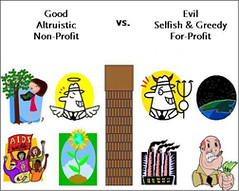Lawsuits are odd things nowadays, sometimes serving as smear campaigns rather than the pursuit of justice for which they are intended. The case of Biegel vs. Denstu, as amended and made available by Ad Age, is one where it becomes very unclear which category it belongs.
Part of the reason is that the Biegel’s revisions further muddle events and allegations while placing even more aim on Toyo Shigeta, CEO of Dentsu Holdings USA as well as another senior executive at Dentsu. The new complaint even includes the web address of the now famous brothel (pictured) where it all went down.
Biegel’s revised complaint now reveals he wasn’t just motivated to stand up just because he was subjected to two years of repeated lewd and sexually harassing behavior, which included forcing him to engage prostitutes, view photographs of crotches, and get naked to “parade” in front of the accused at a Japanese bathhouse. No, Biegel was motivated because another employee was scheduled to take a business trip with Shigeta about two years later.
So Biegel confronted his employer on the presumption that this employee would also be subjected to the same humiliating and sexually degrading experience that Biegel had allegedly endured for years. This was also the time that Biegel chose to disclose that he ought to have reported the bathhouse incident (not necessarily the brothel incident) to human resources.
According to the suit, Shigeta’s attitude toward Biegel changed from positive to negative after that, with Shigeta virtually cutting off all communication between them. (Ya think?) And this is why Biegel now claims he was not only fired because of complaining about sexual harassment, but also because he is Jewish. Huh?
Is there a connection here or is this something out of pulp fiction? In any case, religious discrimination and defamation are added to the case. The latter is presumably because Dentsu denied the charges, which made Biegel look bad. Ho hum.
Meanwhile, Dentsu is standing firm in insisting that the allegations are patently false, and filed a motion to dismiss the complaint. Biegel, they say, ignored formal procedures for making grievances about sexual harassment by lodging claims more than a year after the alleged incidents took place.
Applying Ethics Against Harassment
While I can make no assumptions that any of this occurred or did not occur, I can share what might have occurred had Biegel applied ethics.
• Biegel could have warned Shigeta that he was offended immediately upon being taken to a brothel and took action to leave the brothel, especially after receiving “orders” to participate with prostitutes.
• Upon further insistence or threat, Biegel could have immediately told Shigeta that he would be reporting the incident to human resources.
• Upon further insistence or threat or inaction by human resources, Biegel could have filed a lawsuit.
Had any of this happened, there would have likely been no other occurrences either because Shigeta would have either understood the point or may have been terminated. But then again, there wouldn’t be $1 million lawsuit several years after the fact either.
As I wrote in post yesterday, fearlessness can serve people in business — being “forced” to parade naked in front of your boss would certainly qualify as the time to apply it.

Part of the reason is that the Biegel’s revisions further muddle events and allegations while placing even more aim on Toyo Shigeta, CEO of Dentsu Holdings USA as well as another senior executive at Dentsu. The new complaint even includes the web address of the now famous brothel (pictured) where it all went down.
Biegel’s revised complaint now reveals he wasn’t just motivated to stand up just because he was subjected to two years of repeated lewd and sexually harassing behavior, which included forcing him to engage prostitutes, view photographs of crotches, and get naked to “parade” in front of the accused at a Japanese bathhouse. No, Biegel was motivated because another employee was scheduled to take a business trip with Shigeta about two years later.
So Biegel confronted his employer on the presumption that this employee would also be subjected to the same humiliating and sexually degrading experience that Biegel had allegedly endured for years. This was also the time that Biegel chose to disclose that he ought to have reported the bathhouse incident (not necessarily the brothel incident) to human resources.
According to the suit, Shigeta’s attitude toward Biegel changed from positive to negative after that, with Shigeta virtually cutting off all communication between them. (Ya think?) And this is why Biegel now claims he was not only fired because of complaining about sexual harassment, but also because he is Jewish. Huh?
Is there a connection here or is this something out of pulp fiction? In any case, religious discrimination and defamation are added to the case. The latter is presumably because Dentsu denied the charges, which made Biegel look bad. Ho hum.
Meanwhile, Dentsu is standing firm in insisting that the allegations are patently false, and filed a motion to dismiss the complaint. Biegel, they say, ignored formal procedures for making grievances about sexual harassment by lodging claims more than a year after the alleged incidents took place.
Applying Ethics Against Harassment
While I can make no assumptions that any of this occurred or did not occur, I can share what might have occurred had Biegel applied ethics.
• Biegel could have warned Shigeta that he was offended immediately upon being taken to a brothel and took action to leave the brothel, especially after receiving “orders” to participate with prostitutes.
• Upon further insistence or threat, Biegel could have immediately told Shigeta that he would be reporting the incident to human resources.
• Upon further insistence or threat or inaction by human resources, Biegel could have filed a lawsuit.
Had any of this happened, there would have likely been no other occurrences either because Shigeta would have either understood the point or may have been terminated. But then again, there wouldn’t be $1 million lawsuit several years after the fact either.
As I wrote in post yesterday, fearlessness can serve people in business — being “forced” to parade naked in front of your boss would certainly qualify as the time to apply it.



























